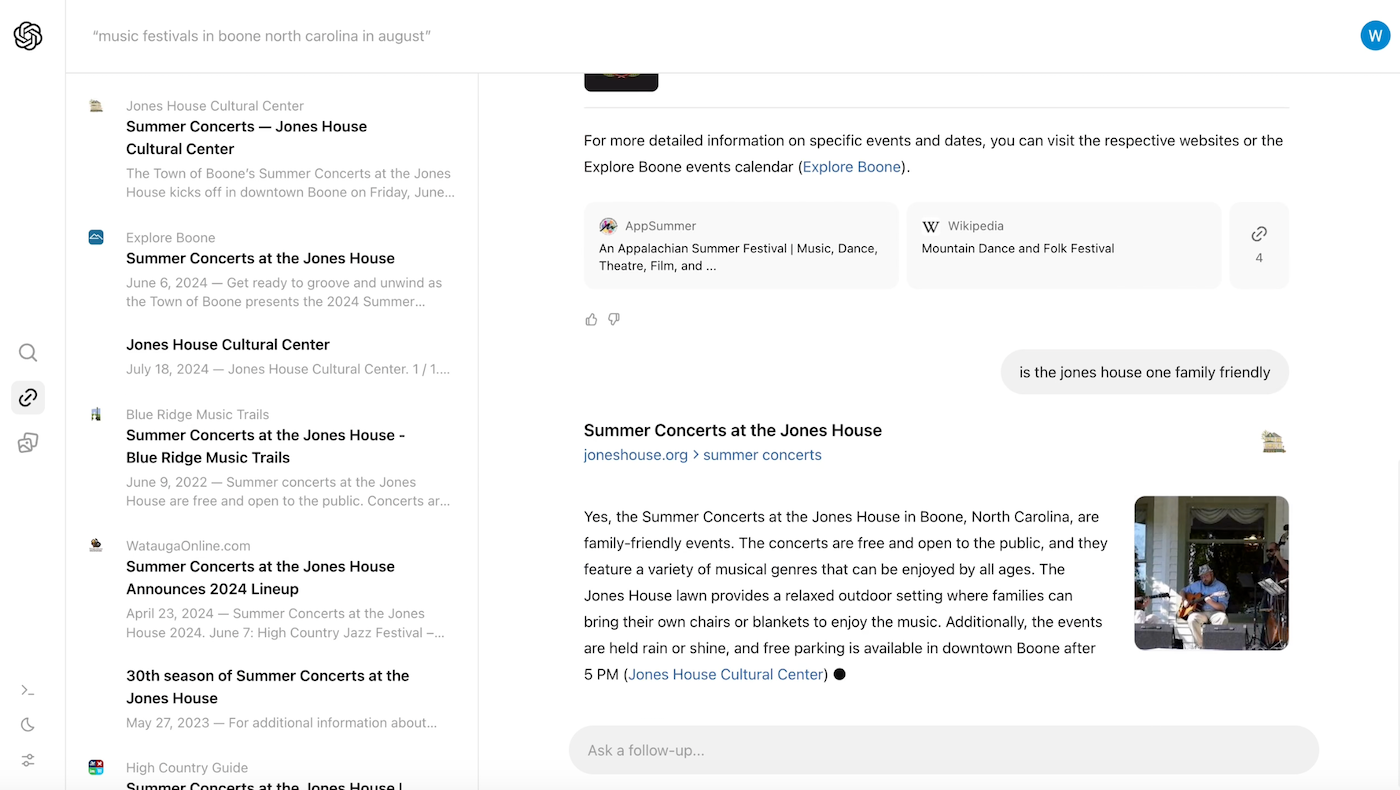OpenAI is launching a prototype search engine for “a small group of users and publishers,” possibly competing with Google Search. SearchGPT will combine machine-generated content with up-to-date information scraped from the web, OpenAI announced in a blog post on July 25.
Organizations interested in testing the SearchGPT prototype can join the waiting list.
'Visual answers' and natural language set SearchGPT apart from Google
OpenAI differentiates SearchGPT from Google Search Generative Experience in a few ways.
Users can ask follow-up questions about their search using informal language. In the example below, “the jones house one” refers to the festival venue the user originally referenced.
Additionally, users will be able to open a tab to see direct links to websites or get “visual answers,” which are graphics or videos. It’s not yet clear whether the visual answers will be AI-generated, scraped from the web, or a combination of both.
OpenAI has partnered with several media companies, including The Atlantic and News Corp, and has attempted to assure publishers that links to original content will be prominently displayed in SearchGPT results.
Google dominates the SearchGPT competitive landscape, but that could change
Google may have been fixing what wasn’t broken over the past few years, optimizing Google Search to try and answer questions and promote high-quality search results. The introduction of the AI-powered Generative Search Experience changed Google Search even further, adding personalized answers to some queries. In numbers, as of July 2023, Google holds 81.95% of the global search engine market share.
Meanwhile, Microsoft first added Bing Chat and then a refined generative AI response format to its search engine.
The competition is on to become the first choice for users on the Internet. If SearchGPT manages to gain market share as a homepage, it could compete with the same search engines that, in the last two years, have incorporated the generative artificial intelligence that OpenAI is famous for.
WATCH: Meta recently announced its most powerful AI model yet with Llama 3.1.
The nature of search engines is also changing, from subject-based directories of Internet content to question-and-answer machines that mine information from the web.
“This is potentially big news in the search world,” Damian Rollison, director of market analysis at marketing firm SOCi, told TechRepublic in an email. “ChatGPT is probably the best positioned of all competitors to overtake Google’s dominance in search, and some aspects of the new interface, such as ‘visual answers,’ appear to be innovative and potentially disruptive. However, of all the areas where ChatGPT can compete with Google, search is where Google’s power as an incumbent with a 26-year head start is strongest.”
The other major player in this space is Perplexity AI, which is already positioning itself as an “AI-based answer engine.” Perplexity AI can be used both in a browser and in an app and can extract current information, unlike ChatGPT.












